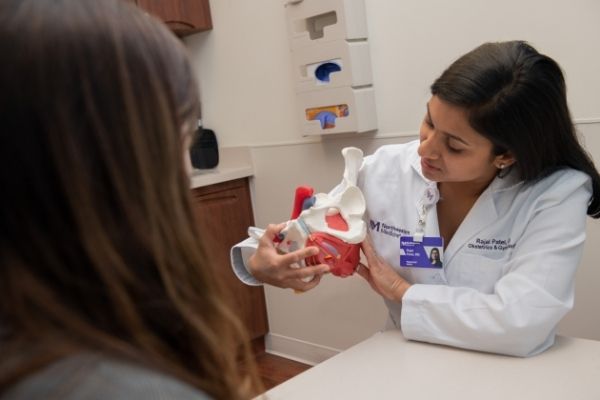Center for Sexual Medicine and Menopause
Specialized Care for Women of all Ages
|
The Center for Sexual Medicine and Menopause at Northwestern Memorial Hospital is a destination for women of all ages requiring highly specialized care. The Center is staffed by physicians, advanced practice nurses, physician assistants, physical therapists, and psychotherapists who work collaboratively with specialists from every branch of medicine. Our multidisciplinary approach ensures more accurate diagnoses, more effective treatment and higher patient satisfaction. We deliver individualized care based on each woman’s unique needs.
Northwestern Memorial Hospital is the only Illinois on the national Honor Roll for 12 straight years, and is nationally ranked in Obstetrics & Gynecology according to U.S. News & World Report. |
Specialty Programs
|
MENOPAUSE
Expert clinicians at the Northwestern Medicine Comprehensive Program for Menopause are dedicated to making life during menopause better. |
SEXUAL MEDICINE
At the Northwestern Medicine Center for Sexual Medicine, our clinicians will address your individual and comprehensive sexual health needs. |
VULVAR AND VAGINAL HEALTH
For women experiencing vulvar and vaginal disorders, the clinicians at the Northwestern Medicine Comprehensive Program for Vulvar and Vaginal Health can help. |
MEET the CliniciansThe Center for Sexual Medicine and Menopause clinicians take a multidisciplinary approach to ensure more accurate diagnoses and to deliver individualized care based on each woman’s unique needs.
To schedule an appointment, call 312.694.9676. |
About UsThe Northwestern Medicine Center for Sexual Medicine and Menopause is committed to providing excellent care and improving your quality of life. We do this with:
|







